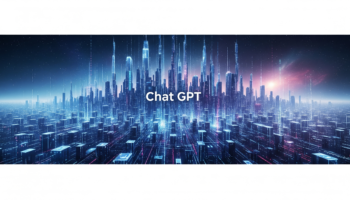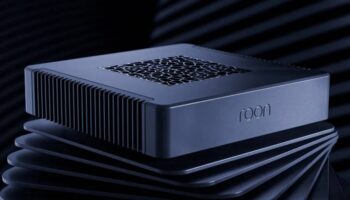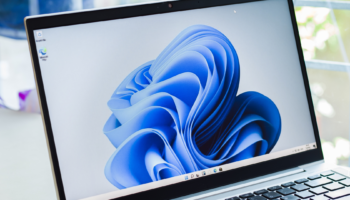The future is right around the corner, and you’ll get a glimpse of it in early January. Every year, the technology sector gathers in Las Vegas for CES, an annual tech industry show where goods for the coming year are previewed, tested, and discussed. It’s like catnip for the world of technology.
Flat-screen TVs, soundbars, and other consumer goods have traditionally been CES highlights, and TechRadar has a nice round-up of what to anticipate from CES 2024. I don’t see much change in the usual venues at this year’s event. But that doesn’t mean innovation has ceased; here’s my perspective on the key themes shaping the show, as well as the goods and innovations I anticipate to see – when they emerge in addition to those I’d like to see more of.
And, because CES is also the launchpad for more hype than a rap album, I’ve highlighted a few places where the hot air will be the most intense.
1. AI is everywhere, particularly on your PC

For a long time, artificial intelligence has been driving consumer electronics. I chatted with LG Electronics President and CTO I.P. Park around a half-decade ago, and he told me that AI might simplify complex processes and let customers get more out of their equipment. “When you’re driving a modern luxury car most people are probably using only five percent of the entire feature set of the car,” he explained to me. “Because it’s too complex… what AI will hopefully do is solve the problem of using complex systems in order for the devices to become smart.” “Smart devices will also understand exactly what you want,” Park noted. He stated that it would be included in everything LG produces.
So, how far have we come in the last five years? I’d say that it’s not all that much. Until last year, when generative AI (for better or worse), chatbots, and Microsoft’s declaration that AI would be baked into a revolutionary new version of Windows due out sometime next summer. They’ll probably call it something terrible like Windows 1124H2, but consider it Windows 12. AI PCs created for it will be all over the place at CES 2024.
2. Serious AI for Appliances

What about Park’s remarks? Is your vacuum currently AI-powered? Is your iron aware of how much steam is too much? Why aren’t our appliances better if AI is in everything, enveloping us like the Midi-chlorians who allowed Luke utilize The Force? Yes, today’s washers and dryers employ artificial intelligence to detect humidity levels and regulate accordingly. But is this artificial intelligence? Is this something that requires intelligence or just better sensors? And, for example, no standard-size oven can tell if your Thanksgiving turkey is completely moist.
Robot vacuum cleaners, in particular, are booming. It’s going to be a dirty war, with popular names like Eureka and Roomba battling against lesser-known names like Narwal and Ecovacs. (Do you see what I did there?) And there’s a lot of creativity: Switchbot debuted a vacuum that attaches straight to your water pipes, allowing it to clean itself before returning to work for you at IFA 2023 in Berlin. And, since Matter added support for robovacs in version 1.2 of its kinda useful standard, they should ideally interact more seamlessly with the rest of your digital stuff. Perhaps Matter will matter?
3. Smarthome: The smart grid has arrived

When it comes to smart homes, the industry is changing.
As the electricity sector finally becomes smarter, whole-home chargers and solar power cells have become a huge emphasis for the consumer electronics industry. It’s a logical progression for battery and charger manufacturers, beginning with Anker, which debuted the Solix brand in June and will likely announce more in the lineup at CES. Consider Solix and its ilk to be enormous battery packs for your home. Its maximum capacity 180kWh array can supposedly power a standard house for a week, which may be useful if your local grid is disrupted by bad weather.
Coplanar, a Palo Alto, California-based start-up that sells portable hydrogen power generators and whole-home energy devices, offers an unusual spin on the standard battery. It is a renewable clean energy source that produces only water and heat as byproducts rather than combustion. What could possibly go wrong with hydrogen power?
4. Cars go electric, not self-driving

While the worlds of technology and automotive appear to be colliding quicker than Vin Diesel and his cronies, the market for self-driving cars has already burst like a punctured tire. GM’s Cruise self-driving car company lost $1.4 billion in 2022 alone, and Ford took a beating, writing off $2.7 billion in 2022 and announcing in its earnings report that it would shift its focus away from the Level 4 autonomous systems being developed by Argo AI and toward driver-assistance technology such as adaptive cruise control and lane-switching assistance.
Meanwhile, tech businesses are itching to get into the automotive industry. Chinese firms such as Xiaomi and Huawei are diving headfirst into this market, and we should expect to hear from a slew of other electric vehicle startups such as Lucid, Polestar, Fisker, and Faraday Future. Okay, perhaps not Faraday Future.
5. Women’s health technology rules the world

The convergence of health and technology is a priority for CES, which explains the surge in panels, keynotes, and talks on the subject. Linda Anegawa, Noom’s Chief of Medicine, Jesse Ehrenfeld, President of the American Medical Association, Stephen Hoge, President of Moderna, and Gail K. Boudreaux, President and CEO of Elevance Health are among those speaking at CES.
They represent all elements of the vast field of health, from Abbott’s award-winning pacemaker breakthroughs to smart beds, health monitoring, fitness gadgets, digital physicians, and more. However, one area stands out above the rest: women’s health.
Of course, there is technology for both genders. Withings is well-known in the smart health space, having created the linked blood pressure monitor in 2011. And it keeps innovating with health devices: we have it on good information that the business is planning a multipurpose handheld device that looks interesting for 2024. NuraLogix, which measures your blood pressure fairly accurately with a 30-second video, also wowed us at CES last year. We’re hopeful that by 2024, this technology will be commercially available.
Look for an array of smart beds and massage chairs on the show floor, which usually manage to give me a rush of fresh energy. (How come I don’t have one of these yet?)
6. VR/AR/MR, 6G, and other hot topics

Is it ridiculous? Maybe! Is it overrated? Absolutely! Dare we call it plain vanilla ridiculous? We certainly do! However, improvements and work in augmented reality are being done that may lead to an augmented future – with or without Mark’s Meta.
Soundscape creates a musical metaverse based on Unreal Engine 5, for example, supporting avatars for an interactive VR music event. The company recently announced relationships with GRiZ, Slash, Evanescence, Goose, and others, and pledges future collaborations with major labels before and after the CES 2024 debut. I’d even go to a virtual concert. And using VR in healthcare is an excellent application of this technology. From immersive virtual reality and augmented reality to haptic feedback for PTSD treatment, there is some realism among the filth that can help restore lost senses.
AR is also just plain entertaining, with VR for automobiles, AR for astronauts, and MR for everything in between. But will it have an impact on your life anytime soon? We seriously doubt it.
Meanwhile, keep an eye out for large corporations slipping the phrase 6G into presentations and displays. We understand what you’re thinking… We’re right there with you.






